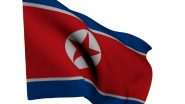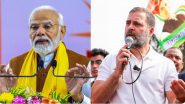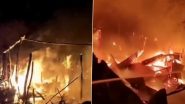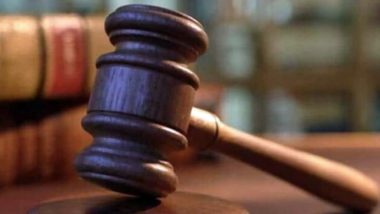Toronto, Sep 18 (PTI) Candidates in the snap elections in Canada were making their final pitches to the voters on Saturday ahead of the polling day on September 20, which will see around 50 Indian-origin nominees trying their luck in the electoral battle.
Prime Minister and Liberal Party Leader Justin Trudeau formally launched his election campaign on August 15 after asking Governor General Mary May Simon to dissolve the 338-member Parliament. Trudeau, 49, called the snap elections two years ahead of its schedule to try and capitalise support for his handling of the COVID-19 pandemic.
Also Read | Zydus Cadila Gets USFDA Health Regulator Nod to Market Depression Treatment Drug Vortioxetine in US Market.
The Liberal leader has acknowledged that some voters may not think an election is necessary for the country to move past the pandemic, but he added that it is important to make a choice on Monday and asked progressive voters anew to support his party.
“People just want to get back to normal and even at the best of times Canadians are never very enthusiastic about an election,” Trudeau was quoted as saying by the Toronto Sun newspaper.
Also Read | Afghanistan Crisis: Afghan Central Bank Urges People To Use Local Currency in Transactions.
“I understand the frustration that some people are feeling — (they) just want things to get back to normal and an election isn't getting back to normal. It's a time of choice. It's a time of decision,” he said.
The major parties to look out for in the polls are the Liberal Party, the Conservative Party, the Green Party, the New Democratic Party led by Indian-origin Jagmeet Singh and the Bloc Quebecois.
Candidates, including Liberal leader Trudeau, Conservative leader Erin O'Toole and NDP leader Jagmeet Singh are making last-minute stops to woo voters.
On Friday, the federal party leaders made a plea for voters to go to the polls even though they debated whether the election in the midst of the pandemic was needed at all, the Global News reported.
The latest polling suggests the Liberals and the Conservatives are in a virtual dead heat with neither likely to land a majority mandate on Monday, it said.
According to a BBC report, NDP leader Singh, 42, will be entering his second campaign with surveys suggesting his popularity among voters is higher than in 2019, the BBC report said.
Various media outlets have reported that around 50 candidates of Indian-origin, including three Cabinet ministers, are likely to contest the elections.
The Opposition has accused Trudeau of trying to secure a majority for his party by calling an election in the midst of a pandemic.
However, Trudeau repeatedly defended his decision and pointed to the election as a necessity for Canadians to choose how they “want to end” the COVID-19 pandemic with the government they choose, the Global News reported.
At the time of dissolution, the Liberal's minority government had 155 seats. In order to gain a majority, it needs to win 170 seats out of the 338 in Parliament.
According to BBC news, Canada has a fixed election date law and the next vote was scheduled for October 2023. But minority governments, which are not uncommon in the country, tend to last about two years.
They can be defeated if they lose a vote of confidence in the House of Commons. Those votes are usually on important pieces of legislation like the federal budget.
The present House of Commons has 22 members of Parliament of Indian-origin. These include three Cabinet ministers- Defence Minister Harjit S. Sajjan; Minister of Diversity Inclusion and Youth Bardish Chagger; and Minister of Public Services and Procurement Anita Anand, according to the information on the website of the Indian High Commission in Canada.
Canada hosts one of the largest Indian diasporas in the world, numbering 1.6 million people, which accounts for more than three per cent of its total population.
The diaspora, whose main concentration are in the Greater Toronto area, the Greater Vancouver area, Montreal (Quebec), Calgary (Alberta), Ottawa (Ontario) and Winnipeg (Manitoba) has done commendably well in every sector in Canada, it said.
The top election body in the country, Elections Canada, has said that it may take five days to finish counting all ballots cast in-person and by mail.
Meanwhile, the Postmedia-Leger poll found a huge majority, seven out of ten Canadians, agreeing that the campaign had been more divisive and confrontational than previous federal elections, the National Post reported.
Andrew Enns, Leger executive vice-president, said the company did not have historical comparisons for that number, but that feeling transcended party lines. Voters of every stripe, except Green supporters, found the campaign had been more divisive than previous elections.
“Quite frankly, Liberals and Conservatives and NDPers are pretty much in unison on this,” he was quoted as saying in the report.
(This is an unedited and auto-generated story from Syndicated News feed, LatestLY Staff may not have modified or edited the content body)














 Quickly
Quickly















